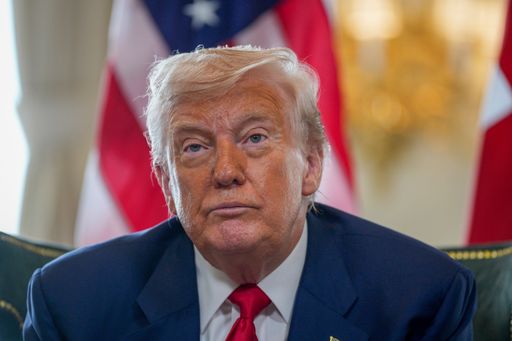A top adviser to US President Donald Trump has escalated criticism of India’s energy policy, describing Russia’s war on Ukraine as "Modi’s war" and linking New Delhi’s oil imports to sweeping new tariffs on Indian goods.
White House trade adviser Peter Navarro made the remarks in an interview with Bloomberg Television on Wednesday, hours after Trump’s administration imposed 50 percent tariffs on Indian exports to the United States.
"Everybody in America loses because of what India is doing," Navarro said.
"The consumers and businesses lose, workers lose because India’s high tariffs cost us jobs, factories and income. And then the taxpayers lose because we got to fund Modi’s war."
When asked if he had meant "Putin’s war," Navarro doubled down.
"I mean Modi’s war, because the road to peace runs, in part, through New Delhi," he said.
Tariffs and accusations
The tariff hike includes a 25 percent penalty tied directly to India’s purchases of Russian oil and weapons.
Navarro argued that India was helping to "feed the Russian war machine" by buying discounted crude and reselling refined products at a profit.
"It’s real easy. India can get 25 percent off tomorrow if it stops buying Russian oil," he said.
The measures have rattled India’s export-driven economy.
The US is one of New Delhi’s largest trading partners, with Indian shipments ranging from garments to shrimp and diamonds.
Analysts warn that higher duties could affect millions of livelihoods.
Trump, who had previously labelled India the "maharaja of tariffs," had already warned on July 31 that penalties could go further.
"I don’t care what India does with Russia. They can take their dead economies down together, for all I care," he told reporters.
He suggested tariffs could rise to 100 percent on countries that continue buying Russian energy unless Moscow moves toward peace.
New Delhi has rejected Washington’s position, calling the tariffs "extremely unfortunate" and insisting its purchases are driven by market factors and the need to safeguard energy security for its 1.4 billion people.
Russia, which supplied less than two percent of India’s crude before the war began in February 2022, now accounts for nearly 40 percent of its imports, according to data from energy consultancy Kpler.
Shipments reached two million barrels per day in August, making Russia India’s largest oil supplier.
External Affairs Minister of India S Jaishankar said the US had previously encouraged India to purchase Russian oil to prevent global price shocks.
"We are not the biggest purchasers of Russian oil — that is China. We are not the biggest purchasers of LNG — that is the European Union," he said.
"Incidentally, we also buy oil from the US, and that amount has increased."
Prime Minister Narendra Modi also signalled defiance, telling local audiences: "We will bear the pressure, but we will not compromise the interests of farmers, cattle-rearers and small-scale industries."

Economic pressures
India’s finance ministry acknowledged in its July review report that tariffs posed potential risks, particularly through supply chain disruptions and inflationary pressures.
While it said the immediate impact on exports appeared limited, it warned of "secondary and tertiary effects" on the economy.
The government has responded with pledges to ease the tax burden on key sectors.
Modi announced forthcoming cuts to shield farmers and small industries, while officials are preparing next-generation reforms to simplify the Goods and Services Tax system.
A recent ratings upgrade has also buoyed hopes of attracting foreign investment despite the trade dispute.
Still, the tariffs underscore the fragility of US-India ties at a time when Washington sees New Delhi as a vital partner in its Indo-Pacific strategy.
Analysts say that while political rhetoric has sharpened, both sides may ultimately seek compromise to avoid long-term damage to a relationship considered pivotal in countering China’s rise.




















